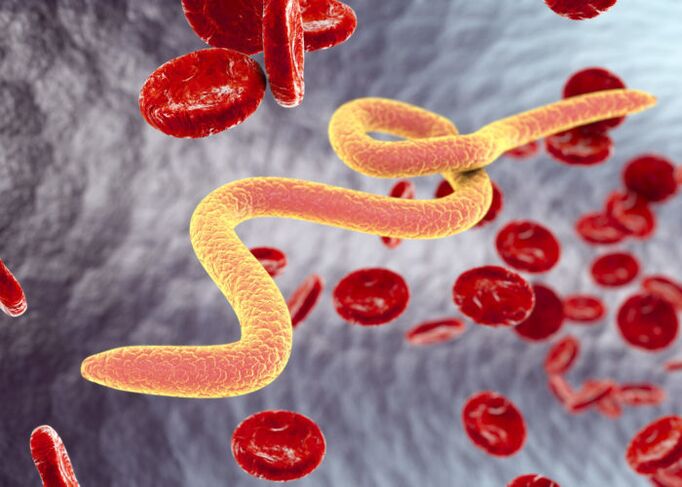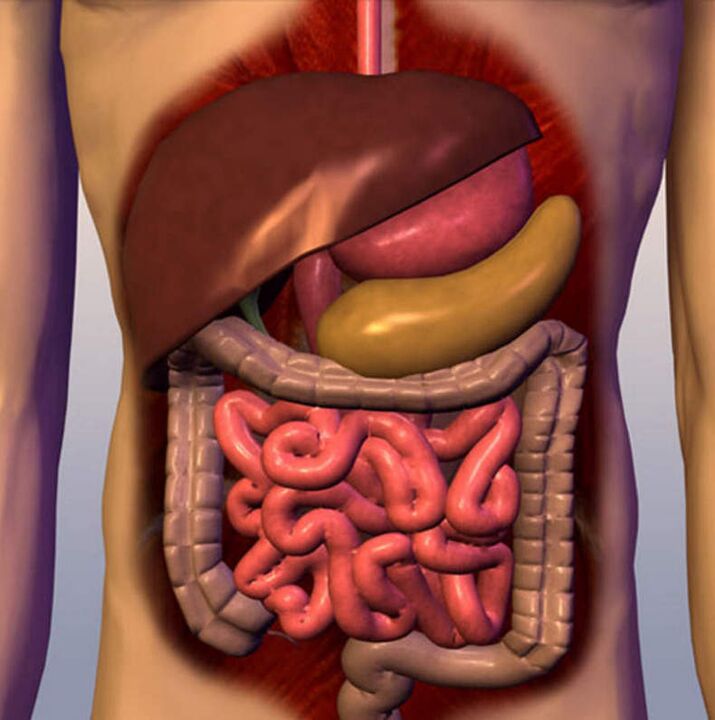Parasites are extremely tenacious. For example, they can wait for their "owners" for years, in the egg or larval stage. Parasites enter the human body, that is, the environment conducive to life, enter the active period, and cause harm to human health.

Residents all over the world suffer from parasitic infections. Experts believe that around 90 percent of the population in high-development countries is infected with one or another human parasite. It is necessary to understand how parasitic infections are and the symptoms they present in the body to avoid possible health complications.
Symptoms of parasites in humans
The development of tourism worldwide is a prerequisite for the unhindered migration of various parasites. Furthermore, it is worth noting that during evolution, these organisms have developed high resistance to environmental conditions and survival.
Where can you catch parasites?
Parasites wait for their new "hosts" on various surfaces such as sinks, washbasins, toilets, natural reservoirs, etc.

The simplest of the parasites - Lan's parasites are prevalent in preschool institutions: they can infect children through basic diaper changes and/or violations of hygiene rules.
There is a high risk of infection with worms (worms) at the point of eating.
The agency's level does not guarantee 100% protection against infection. Parasites enter the body along with raw fish (sushi), undercooked meat (pork), and vegetables, fruits, and herbs that have not been washed sufficiently.
Cooking food in the microwave has the potential to spread parasitic infections: Food does not heat evenly in the microwave. As a last resort, this oven should be used for heating purposes, but not for cooking.
Tap water is a favorable environment for a variety of organisms. And chlorination does not destroy Giardia and Cryptosporidium.
Domestic animals are active transmitters of worms, especially cats. If you don't have pets, you can get infected through the soil in parks, sandboxes, and playgrounds where they walk their dogs.

Parasites find us easily, but we have a hard time finding them.
Parasites cannot always be detected by simple (fecal analysis, egg and parasite testing) or modern diagnostic methods. For example, amebic infection was recorded in only 1 of 10 stool examinations.
This means that a negative test result for the presence of the parasite does not guarantee the absence of the latter.
Parasites masquerade as other diseases
- Behind seemingly chronic fatigue syndrome and candidiasis, giardiasis can be successfully hidden;
- Ulcerative colitis can become amebiasis;
- Migraine, depression manifested as toxoplasmosis;
- Ascaris is a causative factor of allergy and asthma, atopic dermatitis, eczema in young people;
- There is a hypothesis that there is a link between type 1 diabetes and worms (tapeworms);
- There is precedent for treating ADHD and attention deficit syndrome after pinworm removal;
- Possibly convulsions when infected with pork tapeworms;
- Blastocytosis is a trigger for leaky gut, which can lead to autoimmune diseases and food allergies.
signs of parasitic infection
- autoimmune disease;
- anemia;
- Sleep problems, teeth grinding. The parasite is activated during the night and full moon phases. If you have insomnia during a full moon - think about it;
- Skin and mucous membrane damage: rash, acne, nail fungus, eczema, blisters on the nose, ears, eyes, around the anus, lower lip and oral mucosa and irritation/itching of the skin and mucous membranes;
- biting nails;
- Mood instability: irritability, anxiety, depression, mood swings. Parasites secrete neurotoxins.
- chronic fatigue;
- Weight problems: loss of appetite, or conversely, high appetite, cravings for sweets, obesity, underweight children.
- a sudden increase in body temperature;
- dark circles under the eyes;
- food allergy. Most frequently documented potential allergy to dairy;
- nocturia;
- Genitourinary disorders: impotence, erectile dysfunction, prostate disorders, PMS and menstrual cycles, cysts and fibroids, fluid retention;
- changes in the size of the liver and/or spleen;
- Loss of muscle mass, muscle weakness, cramps, and numbness in the upper and lower extremities;
- Chronic and recurrent infections: viral, bacterial and fungal (recurrent candidiasis);
- sweating at night;
- Unpleasant "aroma" of body and breath.

The most notable symptoms of the gastrointestinal tract:
- excess saliva,
- itching around the anus,
- gallbladder problems,
- heartburn, hemorrhoids,
- gas formation,
- constipate,
- diarrhea,
- Vomit,
- Intolerance to gluten, casein and lactose.
Characterized by alternating constipation and diarrhea.
The startling symptoms of a parasitic infection are:
- Bacterial overgrowth of cider
- Irritable Bowel Syndrome and Irritable Bowel Syndrome.
As you can see, it is not easy to determine if there are parasites in your body. But certain alerts and conditions should alert you.
P. S. Remember, by just changing your consumption, we are changing the world together!

















